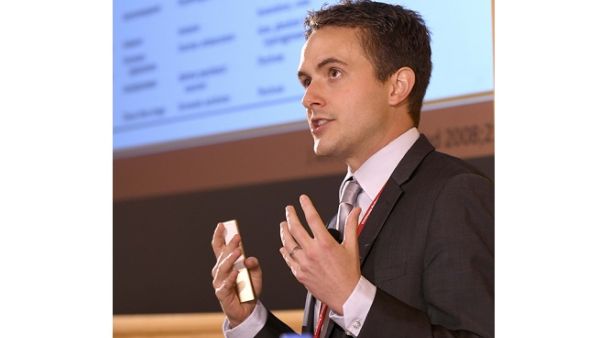Abuse of Over-the-Counter Medicines Addressed by WCM-Q Grand Rounds

Strategies for preventing abuse of over-the-counter medications were explained at the latest installment of Weill Cornell Medicine-Qatar’s (WCM-Q) Grand Rounds series.
Dr. Shane Pawluck, Assistant Professor of Clinical Pharmacy and Practice at the College of Pharmacy, Qatar University, discussed which over-the-counter (OTC) medications have the greatest potential for abuse, the harms associated with OTC medication abuse, and the ways healthcare professionals can intervene to prevent or address such abuse.
Speaking before an audience of students and fellow healthcare professionals, Dr. Pawluck said: “Particularly in the West there is a movement towards deregulation and increased access to more OTC products, as well as higher strengths of drugs, without the need for a prescription. One of the issues here is that several different research studies it has been proven that the public perceive OTC medications as generally safer than prescription products, which is one of the reasons we find ourselves in the situation where we have some issues with abuse and misuse of these agents.”
Dr. Pawluck described some commonly abused OTC medications, such as certain classes of cough suppressants, antihistamine drugs and decongestants that are abused to obtain effects such as feelings of euphoria, stimulation or sedation. Harmful side-effects of taking more than the recommended dose of one commonly abused substance – dextromethorphan - include hyperthermia (overheating), excessive sweating, high blood pressure, elevated heart rate, visual and auditory disturbances, loss of muscle control, fatigue, psychosis, seizures and even coma.
Dr. Pawluck also explained that drug misuse, which is using a medication more frequently, in greater amounts or over a longer time period than recommended, is distinct from abuse, which is intended, non-therapeutic use of a drug for the purpose of achieving a desirable psychological or physiological effect. He then discussed strategies for addressing the problem of OTC medication abuse, which include encouraging clinicians to talk to patients in detail about their use of OTC medications, encouraging safe disposal of medications after the ailment has been treated, better documentation of OTC use, and improving clinicians’ knowledge of OTC abuse and of the available OTC abuse treatment/detox programs.
The lecture was accredited locally by the Qatar Council for Healthcare Practitioners-Accreditation Department (QCHP-AD) and internationally by the Accreditation Council for Continuing Medical Education (ACCME).
Background Information
Weill Cornell Medical College in Qatar
Weill Cornell Medicine - Qatar is a partnership between Cornell University and Qatar Foundation. It offers a comprehensive six-year medical program leading to the Cornell University M.D. degree with teaching by Cornell and Weill Cornell faculty and by physicians at Hamad Medical Corporation (HMC), Aspetar Orthopedic and Sports Medicine Hospital, the Primary Health Care Corporation, the Feto Maternal Center, and Sidra Medicine, who hold Weill Cornell appointments. Through its biomedical research program, WCM-Q is building a sustainable research community in Qatar while advancing basic science and clinical research. Through its medical college, WCM-Q seeks to provide the finest education possible for medical students, to improve health care both now and for future generations, and to provide high quality health care to the Qatari population.






